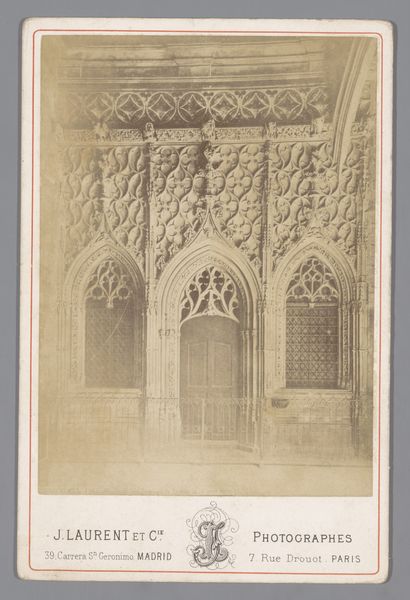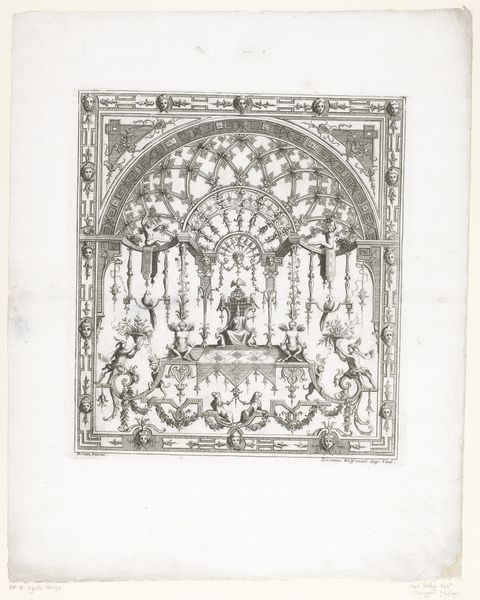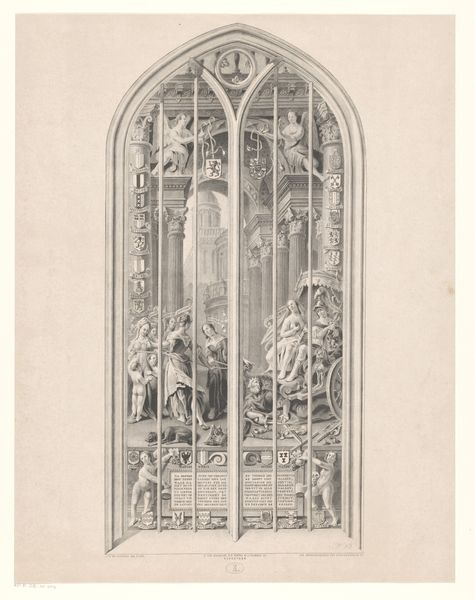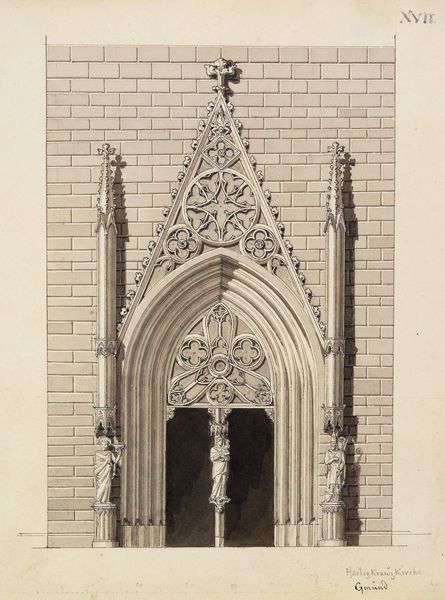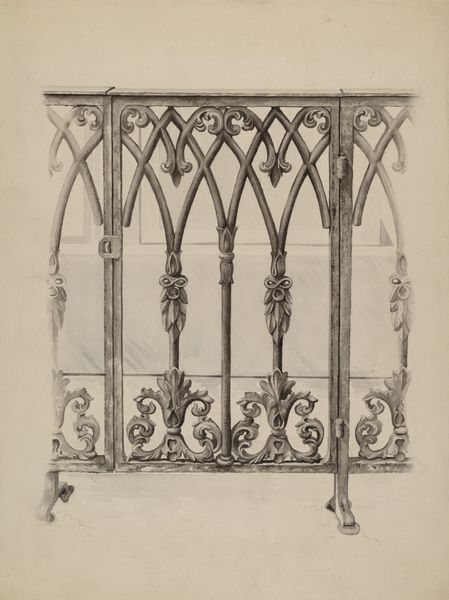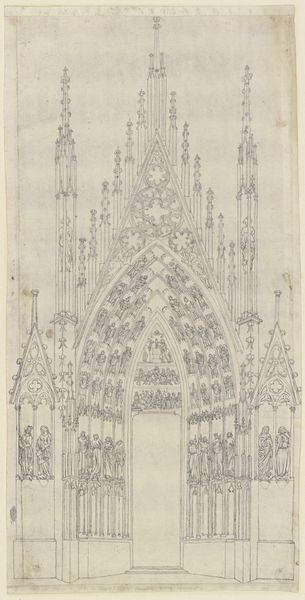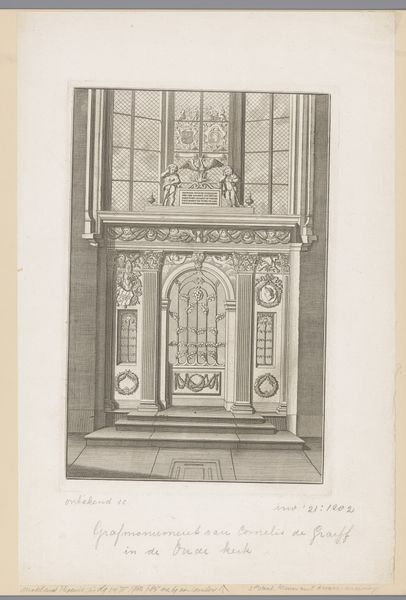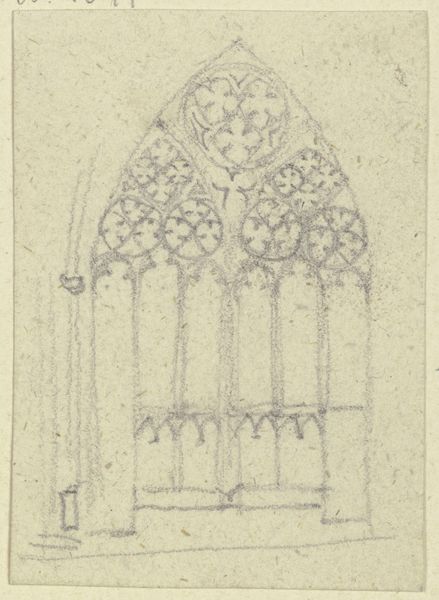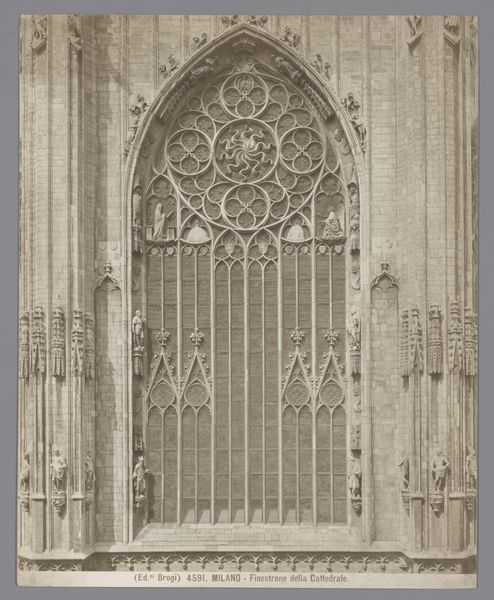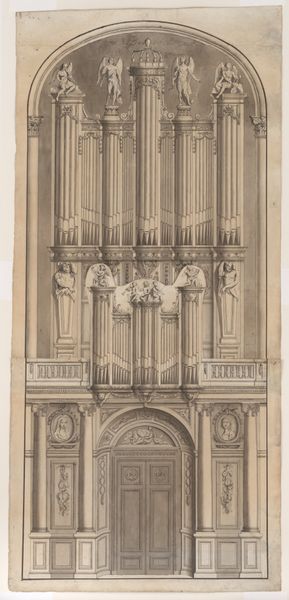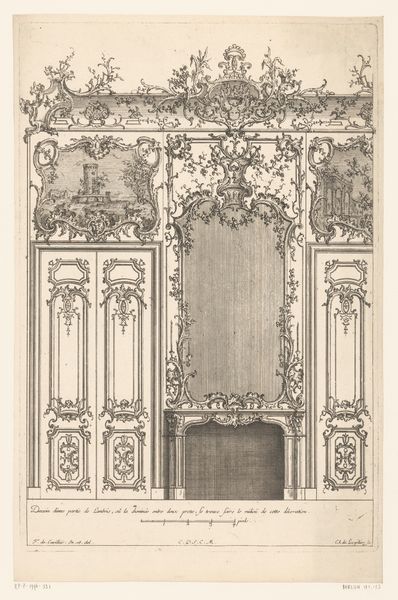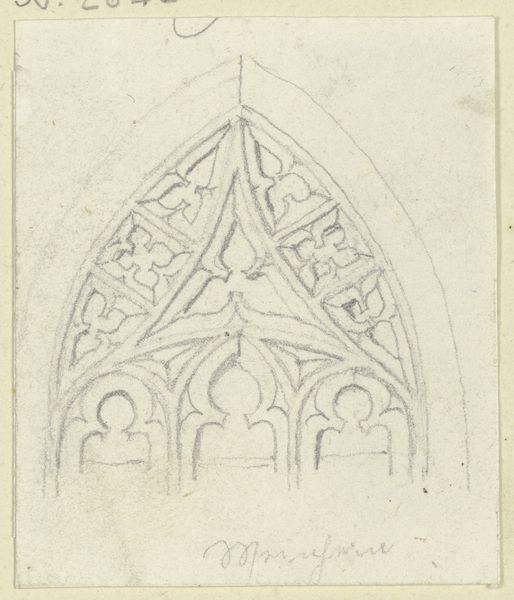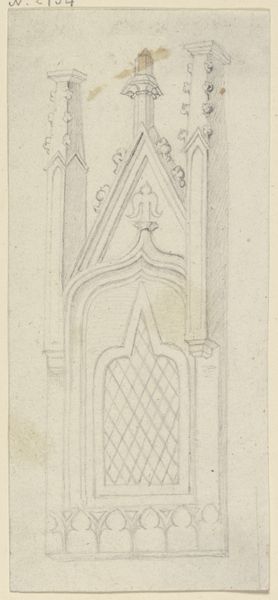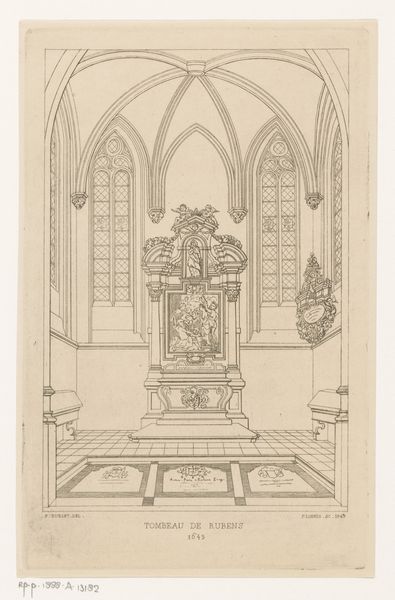
drawing, print, engraving, architecture
#
drawing
#
neoclacissism
# print
#
landscape
#
engraving
#
architecture
Dimensions: height 649 mm, width 463 mm
Copyright: Rijks Museum: Open Domain
Editor: This is "Westelijk raam van de Kathedraal van Exeter," or the West Window of Exeter Cathedral, an engraving by Robert Pranker dating around 1767 to 1769. The level of detail is astonishing. What strikes me is how architectural renderings like this attempt to capture not just the physical space but also, perhaps, something about the sacred space itself. How do you interpret this work? Curator: I see it as a fascinating visual document, imbued with layers of symbolic meaning deeply rooted in cultural memory. The Gothic architecture, with its pointed arches and elaborate tracery, speaks to a particular era's aspirations for the divine. Do you notice how the geometry, particularly in the rose window at the top, evokes a sense of cosmic order? Editor: Absolutely. It's almost like a mandala, each component leading to the next. Curator: Precisely. And consider the figures depicted below. Though static, each would carry significant weight within the context of the church's teachings – figures embodying virtues, apostles perhaps, all reinforcing a narrative. These weren't just decorative elements, but carefully chosen symbols meant to educate and inspire. Editor: So the window is like a visual sermon. I wonder if the viewer at the time understood all these symbols? Curator: That’s a great question. It speaks to the cultural literacy of the period, but even without direct knowledge, the impression of power and importance would still communicate a message, don't you think? Editor: That makes a lot of sense. I definitely learned a great deal about how every visual element matters and functions as cultural symbol, each of the narratives adding a deeper and complex layer to the architecture.
Comments
No comments
Be the first to comment and join the conversation on the ultimate creative platform.
